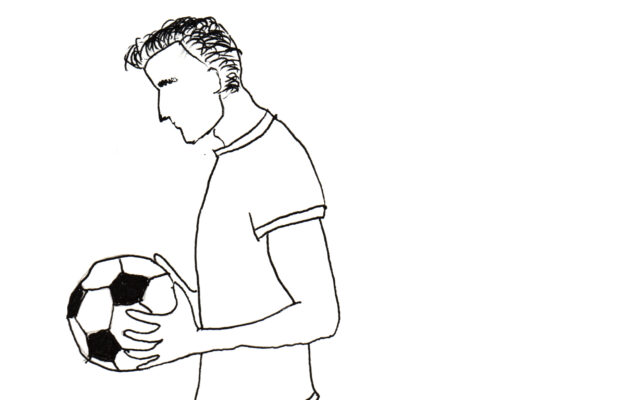Aggressive coaches create quitters; kind coaches create winners

Since March 24, a video of a girls’ high school basketball coach in New York aggressively yanking an athlete’s hair has been circling the internet, igniting outrage. The coach was fired and cited with harassment. From personal experience, I know that the energy a coach brings to the team can make or break an athlete’s love for the sport. Aggressive coaching kills young athletes’ passion and damages athletic performance.
Like many other kids, I played soccer for years while growing up. But at 9-years-old, I quit with the sound of my coach’s shouting echoing in my mind. I lost my passion for soccer and going to practice began to feel like a chore. My coach was beyond strict. Many argue that kids are becoming too sensitive in this generation, but it is clear when discipline is taken too far.
I have now fallen in love with a new sport: mixed martial arts. I work with various coaches who train me to perfect my strength and strategy to become the best fighter I can be. My coaches are strict and push me and my fellow athletes to our limits during conditioning. We do not take infinite water breaks and we do not dare complain. But once practice is over, a coach is just another friend, and the gym environment is welcoming and supportive. Respect does not need to be earned through fear. We, as athletes, respect our coaches for their wisdom and strength.
On days when I feel unmotivated to go to the gym, I am driven by wanting to make my coach proud, rather than fearing his punishment. A good coach, like mine, should push their athletes to become better versions of themselves, on and off the court, field or mat.
Furthermore, coaches should look out for their athletes’ well-being. Although it is crucial for combat sport athletes to push their bodies to their limits and persevere through pain, my coaches are wise enough to recognize when a fighter is injured and needs to take a break or modify the workout to benefit their long-term health.
After boxing one day, my mother expressed her concern that I could get a brain injury while sparring. One of my coaches joined the conversation to assure her that he would protect me if I was in a situation where I could not defend myself. I felt grateful for the supportive community at my gym when I noticed the stark contrast between him and my old soccer coach.
Humiliation, degradation and physical and verbal abuse are unacceptable forms of punishment used to discipline high school athletes.
Alternatively, running laps or doing burpees and additional exercises is an appropriate, beneficial form of punishment. This approach builds discipline and enhances strength and endurance, thus benefiting athletic abilities in a way that allows athletes to take accountability for their actions without being degraded.
Harsh coaching not only discourages athletes but also negatively impacts their athletic abilities. Being in a good mental state allows faster reaction time, better decision making and an overall confident and successful athletic performance.
By serving as a mentor instead of a dictator, coaches have the power to pass on their passion to younger athletes while perfecting their skills and having a good time.



